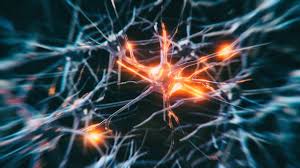Diseases

Motor Neuron Disease
Motor Neuron Disease (MND), also known as Amyotrophic Lateral Sclerosis (ALS), is a progressive neurodegenerative condition that affects the motor neurons, resulting in muscle weakness, loss of coordination, and eventual paralysis. While Ayurveda may not provide a cure for MND, it can offer supportive care to manage symptoms, improve quality of life, and support overall well-being. Here are some key aspects of Ayurvedic management for Motor Neuron Disease:
1. Balancing Doshas: Ayurvedic practitioners focus on balancing the doshas (Vata, Pitta, and Kapha) to address imbalances associated with MND. Treatment involves identifying the dominant dosha involved and restoring its balance through diet, lifestyle modifications, herbal remedies, and therapies.
2. Panchakarma Therapy: Panchakarma, a specialized Ayurvedic detoxification and rejuvenation therapy, may be used to support the body's natural healing mechanisms and improve overall well-being. Procedures such as Abhyanga (therapeutic massage), Swedana (herbal steam therapy), and Basti (medicated enemas) can help reduce inflammation, enhance circulation, and promote relaxation.
3. Herbal Remedies: Ayurvedic herbs and formulations are used to support nerve health, reduce inflammation, and provide symptomatic relief. Some commonly used herbs include Ashwagandha, Brahmi, Guggulu, Shallaki, and Turmeric. These herbs have neuroprotective, anti-inflammatory, and antioxidant properties.
4. External Therapies: External therapies like Pizhichil (oil bath), Elakizhi (herbal leaf poultice massage), and Podikkizhi (herbal powder massage) can help promote relaxation, reduce muscle stiffness, and provide relief from muscle cramps and pain.
5. Diet and Nutrition: Ayurvedic dietary recommendations for MND focus on providing nourishment and supporting overall well-being. A balanced diet that includes fresh fruits, vegetables, whole grains, lean proteins, and healthy fats is typically recommended. Avoiding processed foods, excessive sugar, and unhealthy fats is advised.
6. Rehabilitation and Physiotherapy: Ayurveda recognizes the importance of physical therapy and rehabilitation in managing MND. Therapeutic exercises, passive range-of-motion techniques, and specialized therapies may be recommended to improve muscle strength, flexibility, and overall mobility.
7. Emotional and Mental Support: Ayurveda acknowledges the impact of emotional and mental well-being on overall health. Practices such as meditation, pranayama (breathing exercises), and relaxation techniques can help reduce stress, promote mental clarity, and enhance overall well-being.
It's crucial to work with a qualified Ayurvedic practitioner who can provide personalized recommendations and treatment plans based on your specific condition, needs, and stage of MND. Ayurvedic treatments can be used alongside conventional medical care for MND, and it's important to inform all healthcare providers about the treatments you are undergoing. Regular monitoring of symptoms and follow-up with healthcare professionals are essential for managing MND effectively.
